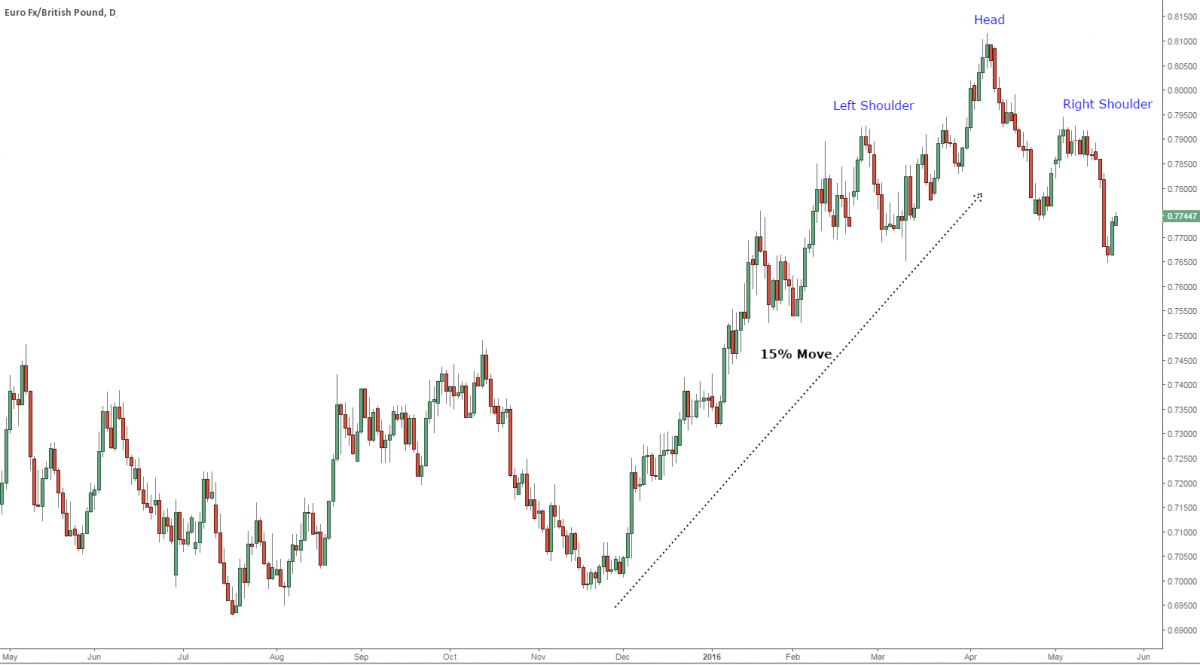- Trading
- Trading
- Markets
- Markets
- Products overview
- Forex
- Commodities
- Metals
- Indices
- Shares
- Cryptocurrencies
- Treasuries
- Platforms
- Platforms
- Platforms
- Platforms
- Platforms overview
- MetaTrader 4
- MetaTrader 5
- Education
- Education
- Education
- Education
- News & analysis
- Education Hub
- Economic calendar
- Help & support
- Help & support
- About
- Trading
- Trading
- Markets
- Markets
- Products overview
- Forex
- Commodities
- Metals
- Indices
- Shares
- Cryptocurrencies
- Treasuries
- Platforms
- Platforms
- Platforms
- Platforms
- Platforms overview
- MetaTrader 4
- MetaTrader 5
- Education
- Education
- Education
- Education
- News & analysis
- Education Hub
- Economic calendar
- Help & support
- Help & support
- About
- Home
- News & Analysis
- Geopolitical Events
- Brexit: A fork in the road for Europe
News & AnalysisWhat is it all about?
The term ‘Brexit’ is simply a play on words combining ‘Britain’ and ‘Exit’, similar to the term describing Greece’s intention to leave the European Union (EU) otherwise known as ‘Grexit.’
On Thursday, 23 June 2016 there will be a UK referendum to decide whether Britain should leave or remain in the European Union. The scale and potential outcomes of this event are so enormous that it may well shape the future of European and global markets.
A decision by Cameron
The driving force behind this referendum was based on a pledge by Prime Minister David Cameron, who promised to hold one if he won the 2015 general election.
It was a direct response to a growing number of UK politicians and members of the British public who believe the country’s sovereignty is in jeopardy and have concerns about interference from the EU on major policy decisions. Prime Minister Cameron was quoted “It is time for the British people to have their say. It is time to settle this European question in British politics.”
The usual suspects
Generally speaking, the same individuals or Euro-skeptics as they are commonly referred to, helped stop Britain from adopting the Euro back in 1999 are also frontrunning the campaign to convince voters to withdraw from the rest of Europe this time around.
These individuals include political big hitters such as former London Mayor Boris Johnson, who when asked about his views on a potential ‘Brexit’ scenario said: “We could be like Canada.”
An immigration headache
The main concern for those with their feet firmly in the ‘yes’ camp is the ever increasing flow of immigrants into the United Kingdom and the government’s ability to handle the situation.
Being part of the EU essentially gives more freedom for individuals to migrate between member countries to find employment and business opportunities.
Those who are championing the ‘Brexit’ idea are of the opinion that many of these overseas migrants are entering the UK under false pretenses, adding to an already saturated job markets and placing further strain on UK taxpayers by claiming benefits.
A counter argument from the opposition suggests the flow of immigrants, most of whom are young and keen to work, fuels economic growth and helps pay for public services. Prime Minister Cameron has acknowledged the immigration concerns by announcing plans for stricter welfare payments with periodic reviews to refine the eligibility process.
UK big business wants in
Without a doubt, the element with perhaps most to lose in this debate is big business. Naturally this group tends to be supportive of Britain staying in the EU because it makes it easier for them to move money, people and products around the world.
Alternatively, an exit would see British leaders begin negotiations with the EU on the finer points of a separation agreement. Furthermore, if policy makers fail to agree on a two-year timeline, British exporters run the risk of being confronted with considerable tariffs placed on the goods and services they are now able to sell duty-free in the 27 other countries.
Hurting a $2.9 trillion economy
Another way the ‘Brexit’ decision could potentially cause financial market turmoil and hurt the $2.9 trillion UK economy is through the slowing of investment affecting capital flows into the country. It could point to a slowdown of capital flow into the country with the UK no longer seen as a gateway to Europe.
Echoes of Norway
Some UK voters may be justifiably scared of leaving the comfort of the EU, especially when the No camp’s campaign message is one of long-term economic ruin and market isolation
We do have a previous example of a country leaving the EU, which is Norway in 1994. The Scandinavian nation appears to have made a success of this transition and although technically not a state of the European Union, has close ties in the context of being a European Free Trade Association member.
Rewind to 1994 and you will find the same arguments used in an almost identical referendum. Those who wished to keep Norway in the partnership spoke of a threatened bilateral relationship, increased isolation, and economic woes, but on the contrary, Norway’s economy has flourished and currently commands serious clout in present day Europe.
International antics as Obama puts on a show
It is clear that major organisations and governing bodies around the world are hoping the Brits to reject the notion come June. Just recently the International Monetary Fund (IMF) stated the UK’s exit could see “severe regional and global damage” when discussing its latest outlook.
Perhaps one of the most confusing aspects of this event was a recent trip to the UK by US President Barack Obama to show support to stay in the EU. When you consider the motivation behind a president whose term is almost complete, the only logical conclusion is that the world superpower would much rather do anything to preserve the status quo rather than risk the unsettling of an already fragile global marketplace.
Abandoning the Pound?
A recent article in the UK Telegraph hinted at the possibility of all EU members adopting the Euro currency by 2020. This too is another huge concern for those wanting to hold onto all things British if the country goes alone.
Switching to the Euro does seem highly unlikely, though, especially since the Pound Sterling has been the stronger of the two currencies historically and even Prime Minister Cameron has expressed on many occasions that he has no plans to make this change whatsoever.
Strong EU support evident in EURGBP pair
The latest Ipsos-MORI poll on 20/05/16 found 55 percent favoured remaining in the EU versus 37 percent wanting “Out.” At this late stage it would seem
Cameron’s aggressive campaign tactics to appeal to the Euroskeptics is working for now.
Looking at the EURGBP pair on the daily time frame, the Pound has gained considerable momentum, reaching its highest level against the Euro in three and a half months.
A classic head and shoulders pattern forming
Analysis from a technical perspective shows a classic head and shoulders reversal pattern forming over recent months as shown in the chart below. It is worth noting that the EURGBP rose 15% from the November 2015 low of 0.6980 up to the April 2016 high of 0.8115. This move also suggests that the market has attempted to price in a potential ‘Brexit’ move in advance so it will be interesting to see how the pair reacts on the day upon the announcement.
Europe faces trouble regardless
Whatever the final result will be on June 23, the outcome will be a truly historical event that many will see as a turning point for the European community as a whole.
If Britain decides to leave, then the European Union will not remain unaffected. It would become increasingly difficult for Europe to promote strength and solidarity when one of its biggest trading partners refuses to join the fold. The action itself would speak volumes and may even encourage others such as Greece to follow suit.
A decision to remain may preserve the systems already in place, but with Europe’s current state of affairs being less than desirable, there is still plenty of work to do to create a stronger, more robust union.
Please note that trading Forex and Derivatives carries a high level of risk, including the risk of losing substantially more than your initial investment. Also, you do not own or have any rights to the underlying assets. You should only trade if you can afford to carry these risks. Our offer is not designed to alter or modify any individual’s risk preference or encourage individuals to trade in a manner inconsistent with their own trading strategies.

Adam Taylor | Senior Analyst Adam Taylor joined the GO Markets’ team in early 2013 and has gone on to become a valued analyst on our Research and Trading team.
Adam’s key strength lies in his technical analysis skills, perhaps honed over his time as a Champion Chess player for his native Scotland. While Adam’s primary role is concentrated towards risk management for GO Markets, he’s a regular contributor to our News and Analysis team, using the highly regarded but rarely used, point and figure method.
Connect with Adam: Twitter | Email | Adam’s posts
The information provided is of general nature only and does not take into account your personal objectives, financial situations or needs. Before acting on any information provided, you should consider whether the information is suitable for you and your personal circumstances and if necessary, seek appropriate professional advice. All opinions, conclusions, forecasts or recommendations are reasonably held at the time of compilation but are subject to change without notice. Past performance is not an indication of future performance. Go Markets Pty Ltd, ABN 85 081 864 039, AFSL 254963 is a CFD issuer, and trading carries significant risks and is not suitable for everyone. You do not own or have any interest in the rights to the underlying assets. You should consider the appropriateness by reviewing our TMD, FSG, PDS and other CFD legal documents to ensure you understand the risks before you invest in CFDs. These documents are available here.
#GeoPolitical #GeoPolitics #Markets #CurrenciesNext Article
Is the rally in the commodities markets going to continue?
After being under a tremendous amount of pressure over the five past years, commodities, represented by the Bloomberg Commodity Index, finally started to show signs of relief when they rallied by some 11% (measured from close to close) over the past three months. This may not seem too much, but when you consider that since 1991 only 8% of the t...
May 29, 2016Read More >Previous Article
7 Best MetaTrader 4 Tips and Tricks
Discover the key MT4 tips and tricks to make you a power user The MetaTrader 4 (MT4 Platform) is arguably the world’s most popular electronic tradin...
May 29, 2016Read More >Please share your location to continue.
Check our help guide for more info.

- Trading


